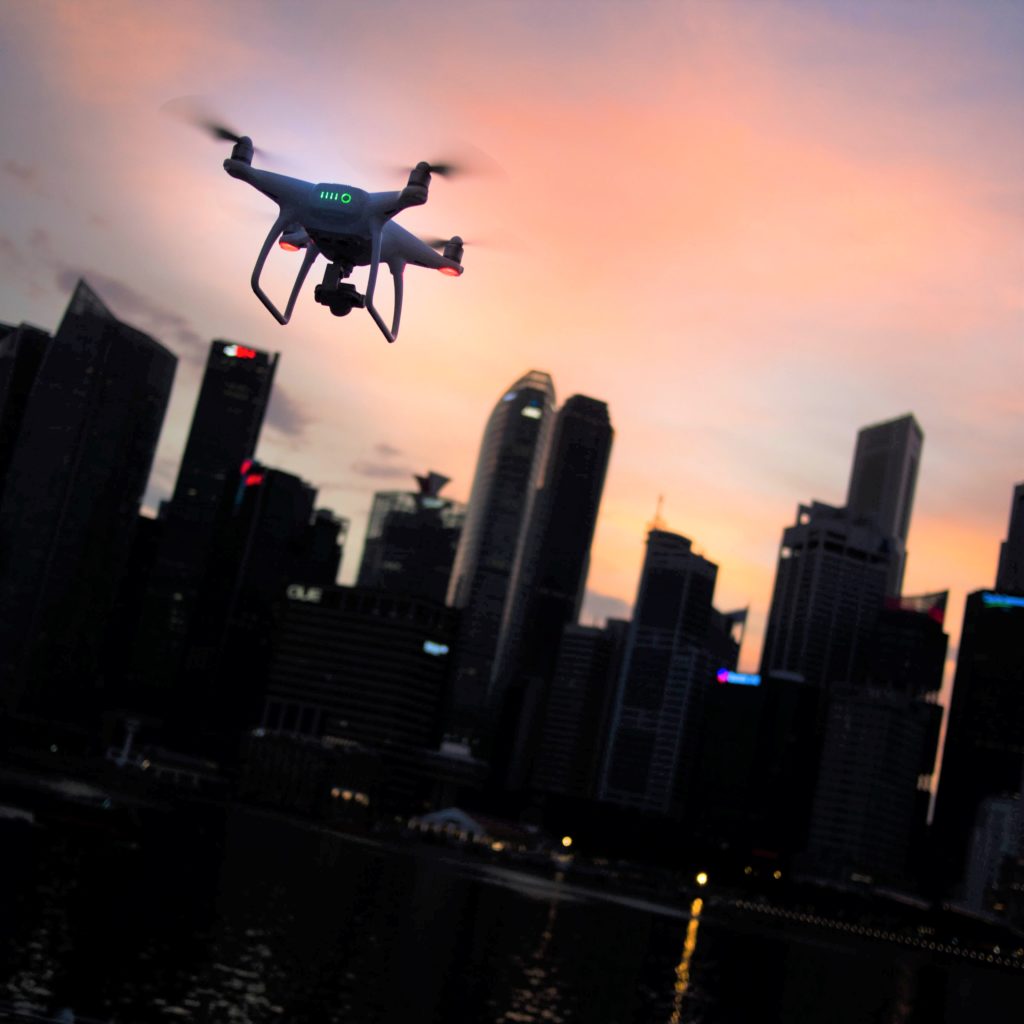Innovative drones use-cases, and specifically medical deliveries, are currently positively stimulated by major annoucements. Dubai has issued a full regulation set, governing drone activities. EASA is progressing on the specific and certified categories, proposing airworthiness standards. And Scotland is performing NHS trials, delivering COVID tests kits covering real operational needs. Let’s go!
1 – DUBAI drone regulation
On July,4th, Sheikh Mohammed bin Rashid Al Maktoum, Vice President and Prime Minister of the UAE, issued Law No. 04 of 2020, outlining new regulations governing drone activity in Dubai. It paves the way for Dubai Department of Civil Aviation (DCAA) to implement ‘Dubai Sky Dome’ initiative, which aims to create a virtual airspace infrastructure and ecosystem for commercial drone use in the Emirate.
The law was developed jointly by Dubai Civil Aviation Authority (DCAA), the Executive Council of Dubai and Dubai’s Supreme Committee for Legislation. Its 10 chapters and 50 articles detail the regulation of all drone activities in the Emirate. It also clearly defines the roles of various government departments in regulation, developing infrastructure and controlling drone traffic.
The Dubai Civil Aviation Authority (DCAA) will oversee the implementation of the law and managing all related operations and activities in line with federal legislations and international treaties and conventions.
Dubai Air Navigation Services (DANS) will streamline the activity of drones within Dubai’s airspace and demarcating the airspace within which they can operate, to support the DCAA in monitoring drone activity.
Dubai Aviation Engineering Projects (DAEP) will develop specifications, standards and conditions for ‘Drone Airports’ and presenting them to the DCAA for approval.
Dubai Police will manage all security aspects of drone operations, coordinating with the DCAA “to put in place security measures to prevent the illegal use of drones and crimes committed by using drones”.
The move is the latest piece in Dubai’s Smart Autonomous Mobility Strategy,.
2 – EASA airworthiness standards for the certification of light unmanned aircraft.
On July 20, the European Aviation Safety Agency has published a proposal of airworthiness standards for the certification of light unmanned aircraft.
The proposed standards, now open for public consultation, are known as Special Condition Light UAS and will be applicable to unmanned aircraft under 600 Kg operated in the specific or certified category. These standards will greatly contribute to the safe operation of drones for a wide variety of services, such as parcel delivery in urban environments, or delivery of essential supplies into crisis zones.
Even if rulemaking on the Certified category of operation is ongoing, publishing the future airworthiness basis is expected to stimulate new design and certification initiatives for drones and to contribute to the safe integration into populated environments of Beyond Visible Line of Sight (BVLOS) operations,
3 – NHS HIGHLAND trials take a significant step forward in drone medical deliveries.
The aim of the trial, backed by Argyll and Bute Health and Social Care Partnership (HSCP) – part of NHS Highland, is to deliver urgent medical cargo, such as COVID-19 test kits and Personal Protective Equipment (PPE), between remote medical facilities by drone.
After succesfull recent trials, flights have been expanded this winter, to see how well they cope with much tougher flying conditions. The tests will involve flying blood and fluid samples.
UK drone operator Skyports conducts the trial and operates the flights using delivery drones supplied by WINGCOPTER, German manufacturer. These trial flights are planned through Thales’s drone operations management platform, SOARIZON.
Based at Lorn and Islands Hospital in Oban, the trial consists of two-way flights between the hospital and Mull and Iona Community Hospital in Craignure 10 miles (16km) away on the Isle of Mull. This service sees delivery times cut from up to 6 hours one-way by ground transport and ferry to around 15 minutes, on-demand, by drone.
The longer trial, funded by the UK Space Agency, will allow NHS Highland to confirm whether drones can be permanently integrated into its transport of emergency supplies and test samples, and could eventually be used throughout Scotland’s islands.

